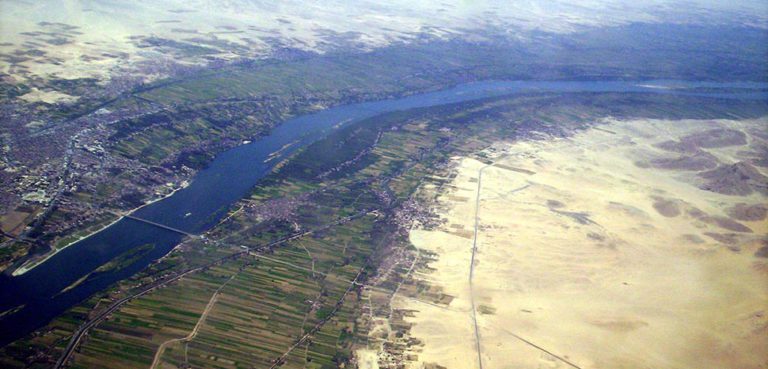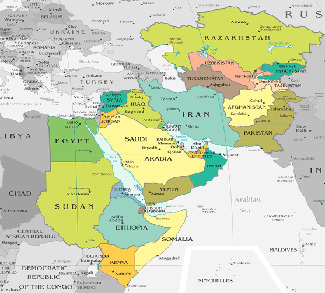The Horn of Africa, long plagued by geopolitical tensions and territorial disputes, has witnessed a significant development with the recent agreement between Ethiopia and Somalia to address Ethiopia’s maritime access. Brokered by Turkey, this agreement is a cornerstone in de-escalating the nearly decade-long rivalry between the two nations and signifies Ankara’s growing diplomatic clout in the region. However, the agreement’s ambiguities and the region’s complex dynamics underscore challenges that lie ahead.
Historical Rivalries and Geopolitical Stakes
Ethiopia’s search for reliable access to the sea has been a critical part of its national strategy ever since it became landlocked following Eritrea’s independence in 1993. Losing its coastline profoundly impacted Ethiopia’s economy and security, forcing the country to rely heavily on Djibouti for maritime trade. While Djibouti has served as a crucial lifeline, this dependency also left Ethiopia vulnerable to higher costs, logistical bottlenecks, and geopolitical leverage in dealings with its smaller neighbor.
Determined to reduce its reliance on Djibouti, Ethiopia began exploring alternative options. This pursuit took a dramatic turn in January 2024, when Addis Ababa signed an agreement with Somaliland, the self-declared independent region of Somalia. Somaliland, which has sought international recognition for decades, controls the strategic port of Berbera—a key asset along major global shipping routes. The memorandum of understanding between Ethiopia and Somaliland suggested that Ethiopia might consider formally recognizing Somaliland in exchange for privileged access to the port. While this promised to diversify Ethiopia’s trade routes, it sparked a fierce backlash from Somalia, which sees Somaliland as an integral part of its sovereign territory.
Mogadishu’s objections were swift and unequivocal. Somalia viewed the agreement as a direct threat to its territorial integrity and a dangerous precedent that could embolden separatist movements across the region. In response, Somalia ramped up its military preparedness and launched an aggressive diplomatic campaign, appealing to both regional partners and the international community to oppose Ethiopia’s actions.
As tensions mounted, it became clear that a prolonged conflict would be disastrous—not just for Ethiopia and Somalia, but for the Horn of Africa as a whole. Such a conflict risked worsening humanitarian crises, destabilizing trade routes, and creating opportunities for extremist groups to exploit the chaos. Recognizing these risks, both nations eventually pivoted to de-escalation. Their efforts were bolstered by Turkey, which stepped in to mediate. With longstanding ties to both countries, Turkey played a crucial role in bringing them to the negotiating table, helping to shift the focus from confrontation to dialogue.
Turkey as Mediator: A Strategic Victory
Turkey, under the leadership of President Recep Tayyip Erdogan, played a pivotal role in resolving the escalating tensions between Ethiopia and Somalia, hosting three rounds of negotiations. The talks culminated in a breakthrough agreement that reaffirmed the territorial integrity of both nations while outlining a plan for Ethiopia to gain secure maritime access under Somalia’s sovereign framework. This compromise aims to address Ethiopia’s need for trade routes without undermining Somalia’s national unity.
The agreement, slated for finalization by April 2025, is a crucial step toward reducing the immediate threat of military conflict between the two countries. For Ethiopia’s Prime Minister Abiy Ahmed and Somalia’s President Hassan Sheikh Mohamud, it also provides much-needed breathing room to address pressing challenges at home. In Ethiopia, these include ongoing ethnic tensions, economic instability following a controversial currency devaluation, and efforts to rebuild trust after years of internal strife. In Somalia, the focus now shifts to consolidating central authority in a politically fragmented landscape and combating the persistent threat posed by Al Shabaab, whose insurgency remains a destabilizing force across the country.
For Turkey, this mediation effort marks a significant diplomatic achievement and a clear affirmation of its growing influence in the Horn of Africa. Over the past decade, Ankara has steadily deepened its footprint in the region, blending economic investment, security cooperation, and humanitarian aid to build trust and partnerships. Acting as a neutral mediator in the Ethiopia-Somalia talks has solidified Turkey’s reputation as a reliable and pragmatic partner, capable of brokering solutions in some of the world’s most challenging geopolitical hotspots.
The agreement also positions Turkey to reap long-term benefits. Turkish companies are now poised to take part in major infrastructure projects tied to the deal, including the construction and upgrading of ports, transportation networks, and other trade-related facilities. This is not only a win for Turkish businesses but also a key part of Ankara’s broader strategy to expand its economic and political influence in Africa. By supporting development in the region, Turkey strengthens its ties with both Ethiopia and Somalia while advancing its ambitions as a global player.
On a larger scale, Turkey’s successful mediation reinforces its growing role as a power broker in global affairs. The Horn of Africa occupies a critical strategic position, connecting the Red Sea to the Indian Ocean, and stability in this region is vital for international trade and security.
Regional Implications: Winners & Losers
Ethiopia-Somalia Relations
The agreement has partially thawed Ethiopia-Somalia relations and reduced the immediate risk of military escalation. For Ethiopia, it offers a pathway to explore new maritime access options, which could ease its reliance on Djibouti for trade. Somalia, meanwhile, has secured a notable diplomatic win by reinforcing its sovereignty over maritime negotiations. By ensuring that any Ethiopian access to ports falls under Somali authority, Mogadishu has strengthened its territorial claims and asserted itself as a key player in the Horn of Africa’s geopolitics.
However, the agreement leaves unresolved questions that could reignite tensions if not addressed. One major issue is Ethiopia’s earlier memorandum with Somaliland, which suggested Addis Ababa might recognize Somaliland’s independence in exchange for access to the port of Berbera. With this new deal emphasizing Somalia’s sovereignty, Ethiopia faces a tough balancing act: how to maintain its ties with Somaliland without alienating Somalia. Additionally, the specific terms of Ethiopia’s leasing arrangements for port access under Somali jurisdiction remain unclear, creating potential flashpoints if expectations diverge. Unless these issues are clarified before the agreement’s planned finalization in April 2025, the fragile calm could give way to renewed conflict.
Somaliland’s Position
For Somaliland, the agreement is a significant blow to its ambitions for international recognition. While Ethiopia has not explicitly abandoned its previous deal with Somaliland, the renewed focus on Somalia’s sovereignty undermines Somaliland’s negotiating leverage. This setback highlights a larger challenge for Somaliland: its bid for independence is often sidelined by the geopolitical priorities of larger powers, who prioritize regional stability over altering borders.
The situation is further complicated by reports suggesting that the United States might be considering recognizing Somaliland as an independent state. If this recognition were to materialize, it would upend the current dynamics. Such a shift could embolden Somaliland’s government to push harder for its goals, potentially heightening tensions.
Egypt’s Setback
The Ethiopia-Somalia agreement also represents a strategic loss for Egypt, which has long sought to counter Ethiopia’s growing influence in the Horn of Africa. For years, Egypt has backed Somalia as part of a broader strategy to isolate Ethiopia and challenge its unilateral actions on the Nile, particularly regarding the Grand Ethiopian Renaissance Dam (GERD). By aligning itself with Somalia, Egypt hoped to curtail Ethiopia’s ability to expand its regional reach.
Turkey’s successful mediation has now disrupted this strategy. The agreement paves the way for Ethiopia to establish maritime access, potentially enabling it to develop naval and economic capabilities that reduce its reliance on traditional partners like Djibouti. This shift strengthens Ethiopia’s hand in the Horn of Africa and weakens Egypt’s ability to pressure Addis Ababa through its alliances in the region. Furthermore, Turkey’s growing influence, at Egypt’s expense, underscores Cairo’s declining leverage in a part of the world where it once held significant sway.
Challenges Ahead
While the agreement represents a diplomatic breakthrough, it’s far from a guaranteed solution to the challenges in the region. The unresolved status of Ethiopia’s deal with Somaliland remains a critical issue, as does the technical and logistical work required to implement the maritime access provisions. These complexities demand not just political will but also sustained cooperation, which could falter under the strain of differing priorities or external pressures.
The broader regional landscape adds another layer of difficulty. The Horn of Africa is a volatile region where alliances shift frequently, and localized disputes often have far-reaching implications. External actors like Egypt, the United States, and Turkey are likely to continue influencing the dynamics, sometimes in ways that may complicate Ethiopia’s and Somalia’s ability to maintain their agreement.
Turkey’s Rising Influence and Broader Geopolitical Impact
Turkey’s successful mediation of the Ethiopia-Somalia agreement marks a major milestone in its growing influence in the Horn of Africa. By brokering a deal between two nations locked in a sensitive dispute, Ankara has positioned itself as a key power in a region historically dominated by players like Egypt and the UAE.
As previously noted, Turkey has built a strong presence in the Horn of Africa through a combination of strategic investments, humanitarian aid, and security partnerships. Nowhere is this more evident than in Somalia, where Turkey has invested heavily in infrastructure, development, and military cooperation, including the establishment of a training base in Mogadishu. These efforts have fostered trust and goodwill, allowing Turkey to step into the role of mediator with credibility and neutrality.
The timing of the agreement is also critical. The Horn of Africa, sitting at the crossroads of global trade routes and rife with strategic opportunities, has become a stage for competition among global and regional powers. Turkey’s success in resolving a key conflict in this region enhances its standing not just in Africa but also on the broader international stage, demonstrating its ability to deliver tangible results in areas where traditional powers have struggled to gain traction.
Strain on Egypt-Turkey Relations
However, Turkey’s growing assertiveness in the region is not without its challenges. One of the most immediate concerns is the potential strain on its recently improving relationship with Egypt. After years of tension over ideological differences and rivalries in Libya and the Eastern Mediterranean, Ankara and Cairo have recently taken steps toward reconciliation. But Turkey’s central role in mediating the Ethiopia-Somalia agreement has exposed the limits of this rapprochement.
For Egypt, the Horn of Africa is a critical theater in its long-running rivalry with Ethiopia, largely driven by tensions over the Grand Ethiopian Renaissance Dam. Cairo has sought to align itself with Somalia and other Horn nations as part of its strategy to isolate Addis Ababa diplomatically and counter Ethiopia’s growing influence. Turkey’s success in facilitating the agreement, however, has dealt a blow to Egypt’s leverage in the region. Not only does it strengthen Ethiopia’s hand, but it also signals Turkey’s growing ability to step into roles that Egypt has traditionally sought to dominate.
This dynamic is unlikely to derail Egypt-Turkey relations entirely, but it does introduce new complexities. Cairo may view Ankara’s rising influence in the Horn of Africa with suspicion, especially as Turkey continues to deepen its ties with Ethiopia and Somalia. For Turkey, the challenge will be managing this delicate balancing act—maintaining its strategic ambitions in Africa without reigniting tensions with Egypt.
An Emerging New Normal of Regional Geopolitics
Turkey’s role in the Ethiopia-Somalia deal also reflects broader geopolitical shifts. The Horn of Africa has become a focal point for global competition, with countries like China, the UAE, and Saudi Arabia jostling for influence alongside Turkey. By successfully mediating this agreement, Ankara has demonstrated its ability to compete with these players, showcasing a model of engagement that blends diplomacy, economic investment, and cultural outreach.
While the agreement marks a significant win for Turkey, it also comes with risks. Balancing its ambitions in Africa with the sensitivities of regional and global players will be no small task. Powers like Egypt, the UAE, and Saudi Arabia may view Ankara’s growing role with unease, and managing these relationships will require careful diplomacy. At the same time, Turkey must ensure that its engagement is sustainable and viewed positively by the nations it seeks to influence. This means continuing to invest in infrastructure, development, and humanitarian initiatives to reinforce its position as a constructive partner.
Conclusion: A Fragile Peace with Opportunities
The Ethiopia-Somalia agreement represents a critical step toward reducing tensions in the Horn of Africa, offering both nations a chance to focus on pressing domestic challenges. Turkey’s role as mediator highlights its growing influence in the region, while the agreement’s ambiguities and unresolved issues underscore the fragility of this peace.
With regard to Ethiopia-Somalia relations, the path forward hinges on successful technical negotiations and sustained commitment to dialogue. For Turkey, the agreement cements its reputation as a capable mediator and positions Ankara as a dominant player in the Horn of Africa. Yet, the geopolitical chessboard remains fluid, with competing interests from Egypt, Somaliland, and other regional actors poised to shape the next chapter of this evolving story.




